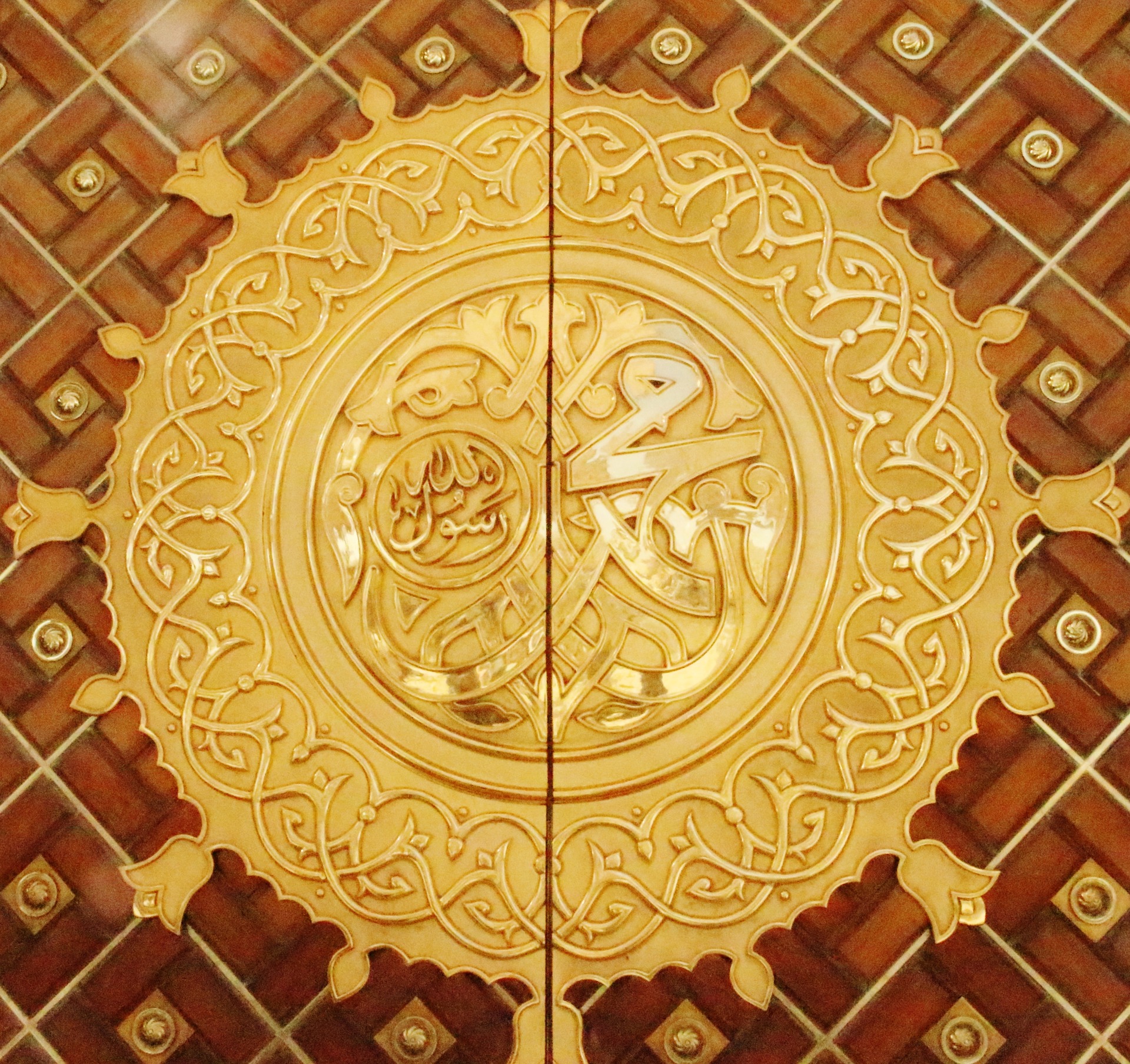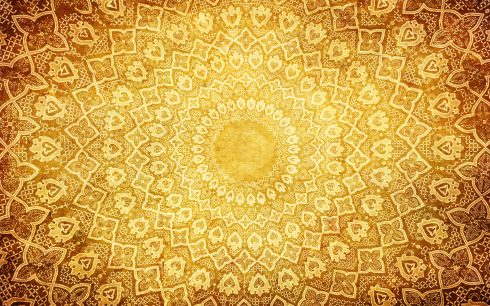Imam Al-Hasan (Pbuh)… The line of wisdom in saving Islam

Allah (swt) says in His Glorious Book, Quran: “Allah only desires to keep away the uncleanness from you, O people of the House! and to purify you a (thorough) purifying” (33:33). One of those members of the House and one of their Imams is the purified Imam Al-Hasan ben Ali ben Abi-Talib (PBUH) who was born on 15 Ramadan 3 AH (≈4 March 624) in the holy city of Medina.
Imam Al-Hasan lived his childhood with his grandfather, the Messenger, Prophet Muhammad (Peace Be Upon Him and His Family) and acquired his spiritually, morals and learned all his sayings and teachings. The Messenger used to love him along with his brother Imam Al-Hussein and he used to ask Allah to love them and love those who love them. He also lived with his purified infallible mother Lady Fatima Az-Zahra’, whom, although young in age, was quite acquainted with everything her father has called for, and became a teacher to the women around her.
ImamAl-Hasan lived his youth with his father, Imam Ali, who taught him, in addition to Islam, how to be firm and strong in defending the right, and how to be patient and tolerant. ImamAl-Hasan lived all the troubles his father faced, and learntthe sacrifice of everything he had for the sake of Islam, and how to endure what cannot be endured for the sake of the Muslims. Thus, similar to his father,Imam Al-Hasan follows the same path when he faced some troubles during his caliphate.
Imam Al-Hasan was not weak in his confrontation of Mu‘awiya ben Abi-Sufyan. When we study his letters to Mu‘awiya, we find that he used the same method his father did in dealing with him: that of power, proof and defiance. It is unfortunate that those who talk about Imam Al-Hasan do not talk about his letters that revealed his staunch stand in defending the rights. They rather portray him a weak pacifist, and not as an Imam who shoulders his responsibility of enjoining good, forbidding evil and challenging falsehood.
Thus, Imam Al-Hasan, lived the pains his father lived before him, facing a lot of ingratitude, as if the people, including some of the Messenger’s companions, did not hear the Prophet(PBUH) saying: “Al-Hasan and Al-Hussein are the leaders of the youth of Heaven”, and“Al-Hasan and Al-Hussein are Imams whether they rise or not”. Yet Imam Al-Hasan, resorted to the patience of his father, mother, and grandfather. He faced the situation in a rational way, which means that his patience was one of wisdom, not weakness. He was thinking rationally just like his father before him to safeguard the Muslims’ peace and stability and to unite their word even at the expense of his own concerns.
We know that Imam Ali was appointed by Allah who asked the Messenger to convey this fact to the believers. Yet the Imam chose to freeze any demand of his right without conceding it. He chose to put the Muslim’s wellbeing first. This is also what Imam Al-Hasan did. When Imam Al-Hasan saw that the Muslims’ interests demanded a truce and not a peace agreement with Mu‘awiya he did that.
Imam Al-Hasan did not have the right to concede his Imamate, but he could hold a truce regarding war and not one that has to do with the Imamate, just as his father did before him.
As a token of their complaint, some of the companions of Imam Al-Hasan used to greet him in a way that was nevertheless compassionate, by saying: “AssalamuAlaikum. O, humiliator of Muslims”. But Imam Al-Hasan used to say I have glorified the Muslims because I have preserved the line of the right that stood with Imam Ali’s right. Thus, the Imam was paving the way for the movement of his brother, Imam Al-Hussein.
A part of Imam Al-Hasan’s army joined him not because they loved him but because they wanted to fight Mu‘awiya at any cost. Another part was looking for the booties of the war. A third was driven by fanaticism and loyalty to their tribal leaders who were looking for money and power. A fourth part even included some of the Imam Al-Hasan’s relatives, whom Mu‘awiya had bought. Those left the army without a leadership, and some of them sent letters to Mu‘awiya, telling him that they were ready to give him Al-Hasan dead or alive.
Therefore, Imam Al-Hasan did not enjoy the same circumstances Imam Al-Hussein had. Any movement similar to that of Imam Al-Hussein would have let to the ultimate 100% downfall of the opposition which the Imam Al-Hasan wanted to preserve to ensure that the nation continued to be aware of the right.
Thus, the truce was not a recognition of the legitimacy of Mu‘awiya. It was rather a decision that Imam made after he studied all circumstances including the nature of his army, reaching the conclusion that the continuing of the war would be counterproductive, even for the interest of the cause itself.
That is why it was said that Imam Al-Hussein’s revolution was an echo of Al-Hasan’s truce.Consequently, we are against those who say that there is a Hasani peaceful attitude and a Husseini revolutionary one. Imam Al-Hasan’s attitude is a Husseini attitude in Al-Hasan’s conditions and vice versa. They both draw from the same principles.
The best way to learn about Imam Al-Hasan’s personality, is to read what his nephew Imam Zain Al-Abideen said about him,“Imam Al-Hasan was the most and greatest worshiper in his times, the most ascetic person (although he had a lot of money whom he used to give to the poor) who fears Allah and the best of men. When he went to Hajj (Pilgrimage), he went on foot, and mostly barefooted, and if he recalled death, resurrection, and path on the right way, he would cry. If he mentioned or recalled Allah, he would cry until he fell unconscious. When he used to pray, he would quiver. And if heaven and hell were mentioned he shuddered as if he were bitten by a snake or a scorpion and asked Allah for heaven and not hell”.
He was of supreme morals, so tolerant and patient.It is said that once a man from Damascus whom Mu‘awiya had brainwashed saying that Imam Ali does not pray, and when he saw Imam Al-Hasan started cursing him and his father. Imam Al-Hasan continued to look at him kindly, and when he finished, Imam Al-Hasan said: “O old man! I think you are a stranger here. Maybe you mistook me for someone else? If you propitiate us, we will satisfy you. If you ask us, we will give you what you need. If you ask our advice, we will guide you. If you ask us to give you a ride, we will take you with us. If you are hungry, we will satisfy you. If you are unclothed, we will clothe you. If you are in need, we will make you rich. If you are a refugee, we will give you lodgings. If you have a request, we will grant it. If you join your luggage to ours, and be our guest until the time of your travel, it will be more useful to you, because we have a spacious place, a good social position, and a vast amount of money”. The man was taken to the Imam Al-Hasan’s house, where he saw how hospitable and kind the Imam was and how he practiced the morals and values of Islam. He began to review his motions about them and said: “Allah knows best whom He entrusts His message with”.
It is also said that he and his brother, Imam Al-Hussein once saw an old man performing Wudu’ (ablutions) in a wrong way, they wanted to teach him, and since he was an old man they thought of a way to tell him how to perform Wudu’ without offending or hurting him, so they said to him: “We want to perform Wudu’ in front of you, so as to tell us which one of us performs it correctly. When they performed their Wudu’ in exactly the same way, yet different than the way he performed it, he understood that they aimed at teaching him the right way, and thanked them for their good deed. We learn from this incident how to tell someone that he is wrong in the way that is best and that does not hurt his morale and these are the morals of Ahl Al-Bayt.
When we believe in the Imams of Ahl Al-Bayt, we do not do this because we are fanatic, but because we see in them the embodiment of Islam and the image of the Messenger (PBUH): “The example of the members of my Household among you is the example of Noah’s ark. Whoever boards it will attain salvation and whoever does not board it will drown.”
Peace be on him the day he was born, the day he died and the day he will be resurrected.
* This edited article is from a sermon delivered by Grand Ayatollah Sayyed Muhammad Hussein Fadlullah (May Allah Grant him Paradise). It is originally published in Bayynat in English (and translated by GhassanRimlawi).

